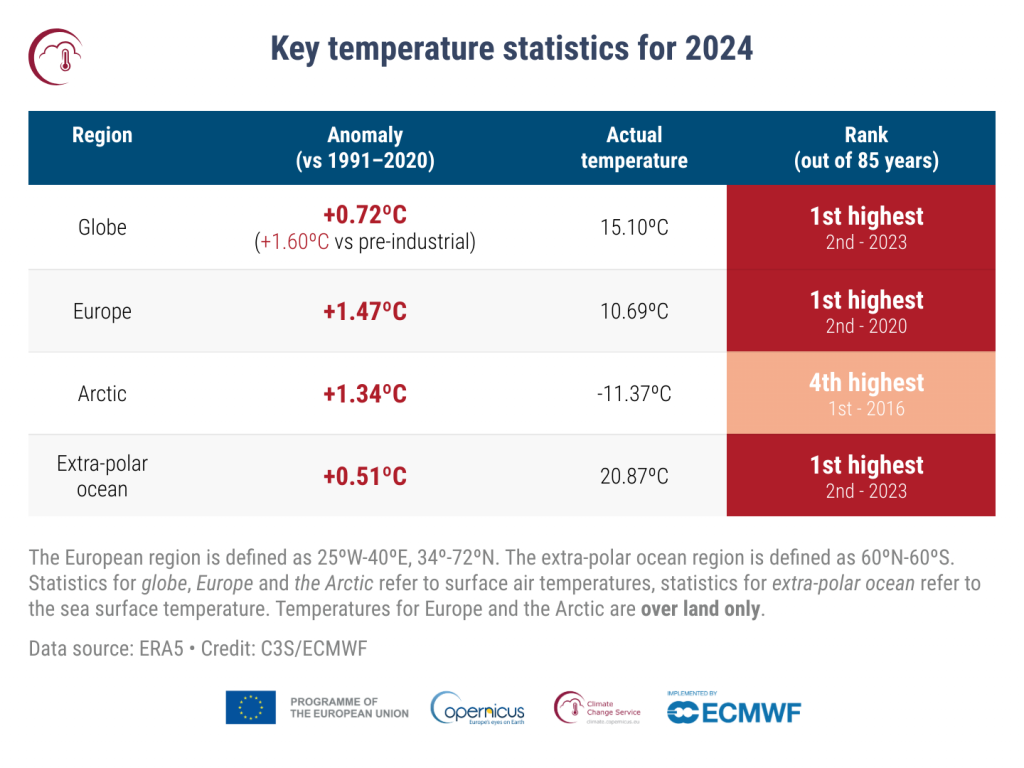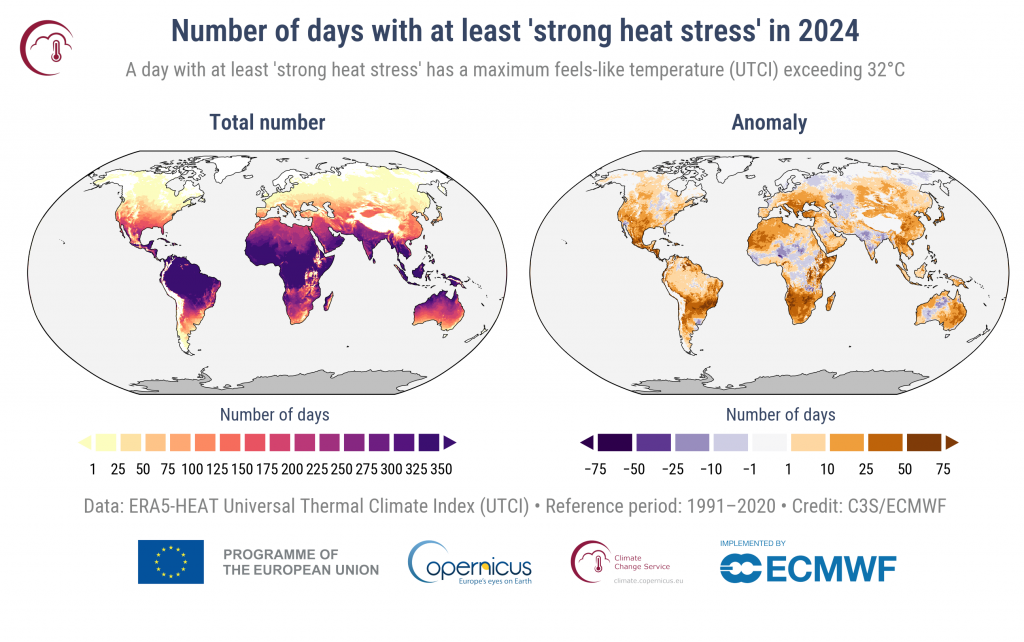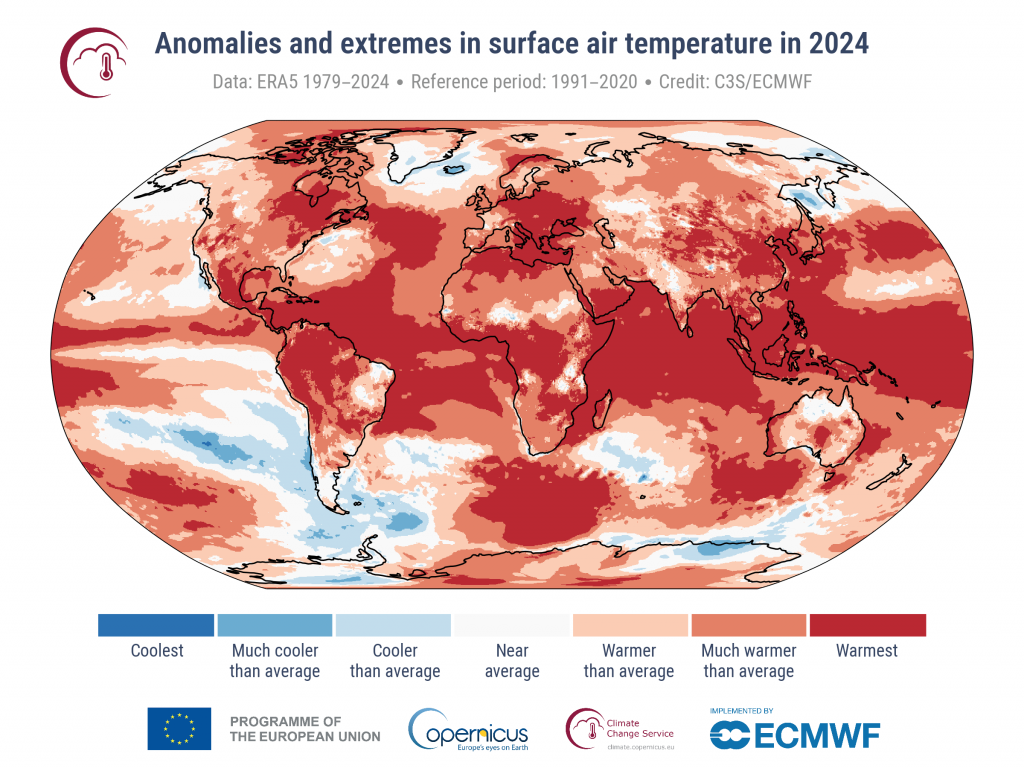A report published by European observatory Copernicus Friday confirmed that 2024 reached an average global temperature 1.60°C higher than pre-industrial levels. The new data indicates that the past two years have exceeded the 1.5 global warming limit set by the Paris Agreement in 2015.
According to the study, while this temporary breach does not constitute a formal violation of the Paris Agreement, the ongoing upward trend in global temperatures has the potential to undermine the agreement’s objectives in the coming years.

Europe also experienced its hottest year on record in 2024, with average temperatures surpassing the previous high in 2020 by 0.28°C. The findings add to data calling this decade the warmest in recorded history, exacerbating climate challenges such as more frequent and severe natural disasters, accelerated species extinction, rising sea levels, and increased vulnerability for smaller, climate-impacted nations.
The report speculates that extended heatwaves in Southeastern Europe, parts of the Americas, North Africa, the Middle East, Australia, and central Asia are indicative of a prolonged lack of precipitation which can be attributed to rising temperatures.

A similar study by World Weather Attribution και Climate Central echoed Copernicus’ findings, concluding that climate change added 41 days of dangerous heat in 2024.
The effects of reduced rainfall and extended period, in turn, are regarded as the main drivers of the ongoing Los Angeles wildfires, which have left 10 dead and over 10,000 homes burnt to a crisp.
According to the US National Weather Service, the end of 2024 was a historically dry season for Southern California, which received less rainfall than ever at just .16 inches since October.

Despite these alarming trends, climate experts emphasize that not all hope is lost. In an interview with the BBC, Zeke Hausfather, a climate scientist at Berkeley Earth, stressed the importance of sustained action, “It’s not like 1.49°C is fine, and 1.51°C is the apocalypse. Every tenth of a degree matters, and climate impacts worsen progressively with additional warming.”
The Copernicus report, nevertheless, serves as a stark reminder of the urgency to mitigate climate change. Experts urge policymakers and communities to redouble efforts to prevent further warming and stabilize the current 1.6°C rise.


